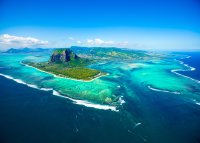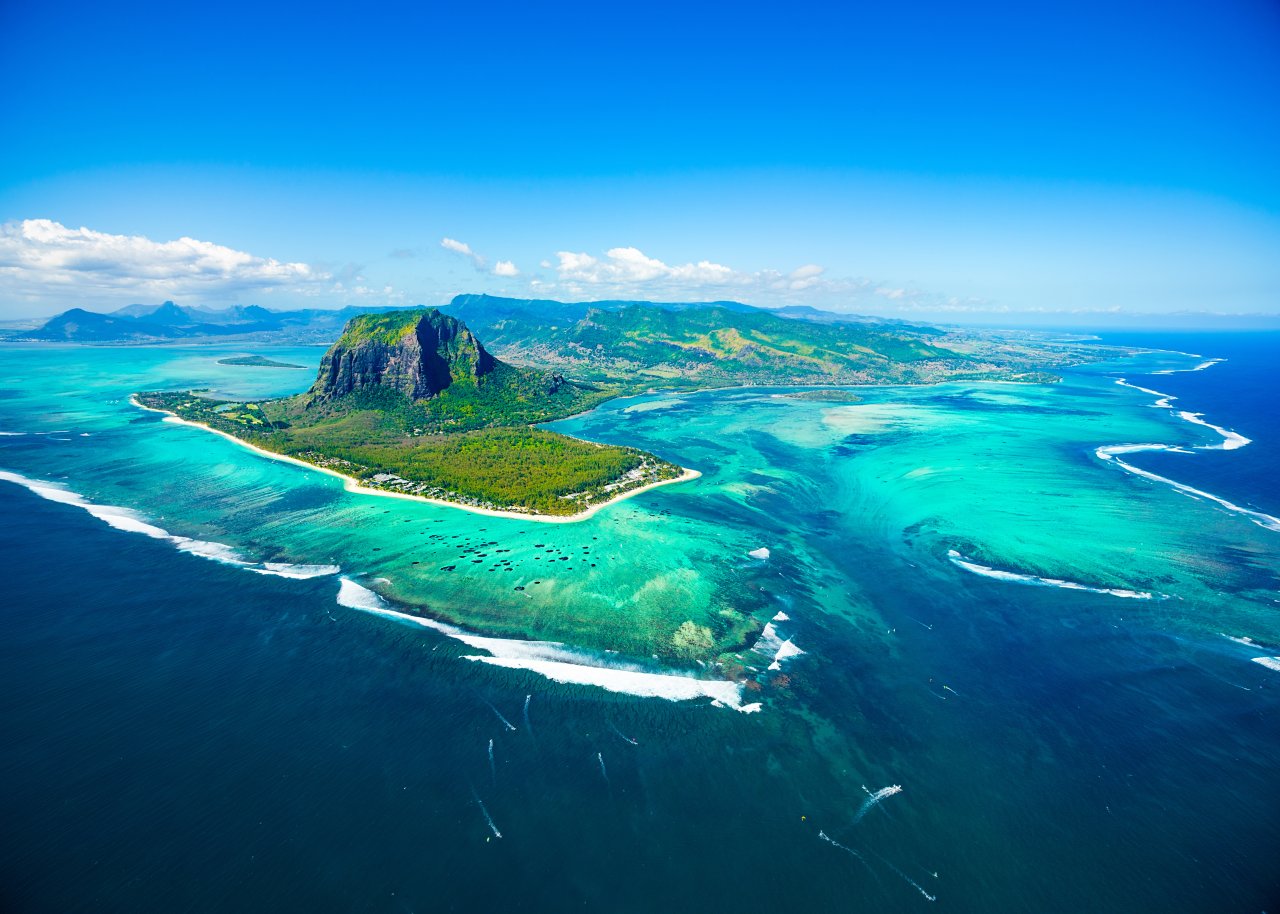The name of the Chagos Archipelago used to be Bassas de Chagos, after the largest island of the group, which was known as Chagos, or Gratiosa, as well as by the name which has survived today, Diego Garcia.
Diego Garcia is in the form of a serpent bent double, its interior forming a broad, steep, coral wall standing in the ocean. This encompasses a lagoon which is a large natural harbour and safe anchorage. The island is 28.5km2 in area with a steep coral reef all around, except at the entrance to the lagoon.
The French exiled leprous slaves to Diego Garcia from Mauritius claiming that the turtle, which would be their sole diet, would restore them to good health. In 1792, an English merchant ship sent two Indian crew members ashore for water and some of the leper residents – women as well as men – met them and showed them to a well. When the master of the ship learned of the encounter he made the seamen stay on the island and sailed away as fast as he could.
After the British takeover in 1810, the exiling of leprosy sufferers was discontinued and some 300 migrants, including Europeans, went voluntarily from Mauritius to set up a saltfish trading company and to plant and harvest coconuts. The settlement flourished peacefully for 150 years. Produce was ferried to Mauritius, whence came the imported goods the settlers needed to live.
By 1965, the population of the entire Chagos Archipelago had grown to some 900 families, representing 2,000 inhabitants. The islands were dependencies of Mauritius and the îlois – the Creole term for the Chagos islanders – conducted trade with Mauritius through an irregular ferry link. They were content with their simple and presumably happy existence.
In the countdown to independence, Britain decided to detach Diego Garcia and the nearby islands from Mauritius, virtually taking them over a second time. The politicians in Mauritius were obliged to agree because, being a colony, they had little choice and gaining independence was their priority.
Three million pounds in development aid was the reward while Mauritius stipulated two conditions for letting Britain keep Diego Garcia: it would be used for communication purposes only, and the atoll would be returned to Mauritius if Britain no longer needed it.
Having signed the agreement, Britain created a new colony: the British Indian Ocean Territory. The Chagos islanders were bemused, but the future soon became clear. The ferry service linking them to Mauritius was stopped, the sole employer of labour was bought out by the British and the copra plantation was closed down. Work ceased, and so did food imports. Many of the îlois had to leave to survive.
Less than a year later, in 1966, Diego Garcia was leased to the United States of America for ‘defence purposes’. The 1,500 îlois, 500 of whom lived on Diego Garcia, were removed to Mauritius and the Seychelles. Foreign Office documents reveal one British official wrote, ‘unfortunately, along with the birds go some few Tarzans and Man Fridays whose origins are obscure and who are hopefully being wished on to Mauritius’. The lease to the US is for 50 years, with an option for a further 20 years, which both parties must agree by December 2014.
Now Diego Garcia is the main US military base in the Indian Ocean, with superb port facilities, the latest in communications systems and a 3,600m runway capable of handling, and fuelling, B52 bombers. A key launch pad for bombing attacks into Iraq and Afghanistan, the island’s coconuts have been replaced with a nuclear arsenal.
When politicians in Mauritius realised what had happened, a cyclone of protest and controversy raged. After years of angry negotiations, Britain acknowledged that the Chagos islanders, who had been forcibly displaced from their homes, were entitled to better treatment than being abandoned in the backstreets of Port Louis. Compensation was paid in 1982, but mainly to the Mauritian Government, who had to accommodate the islanders.
In November 2000, the îlois won an historic victory in the English High Court, which upheld their right to return to their homeland. However, the British Government declared that this ruling had to be balanced with their treaty obligations to the US and affirmed that the right to return excluded Diego Garcia. Furthermore, the UK and US both said it was not their responsibility to arrange for the Chagos islanders to return.
In June 2002, the British Foreign and Commonwealth Office completed a feasibility study into resettlement of the islands and concluded that it would be difficult, precarious and costly. Harvard resettlement expert, Jonathan Jenness, commented that the study’s conclusions were ‘erroneous in every assertion’.
In June 2004, the British Government used the Royal Prerogative – effectively a decree by the government in the name of the Queen – to enforce the continued exile of the îlois. The Chagos islanders challenged the government’s order and, in 2006, High Court judges ruled in their favour, granting them the right to return to the islands and describing the government’s order as ‘repugnant’.
The Court of Appeal upheld the decision in 2007, but, on 23 October 2008, the British Government won its appeal to Britain’s highest court, the House of Lords, against the previous rulings allowing the Chagos islanders to return home. British Foreign Secretary, David Miliband, welcomed the ruling. On behalf of the government he expressed regret for the way the resettlement of the Chagos islanders was carried out, but noted: ‘the courts have previously ruled that fair compensation has been paid and that the UK has no legal obligation to pay any further compensation.’
In April 2010, the British Government established a marine reserve around the Chagos Islands. While the marine environment around the islands certainly merits protection, the motivation behind the creation of the reserve was called into question when a cable released by Wikileaks revealed that a Foreign Office official had told a US counterpart that ‘establishing a marine park would, in effect, put paid to resettlement claims of the archipelago’s former residents’.















